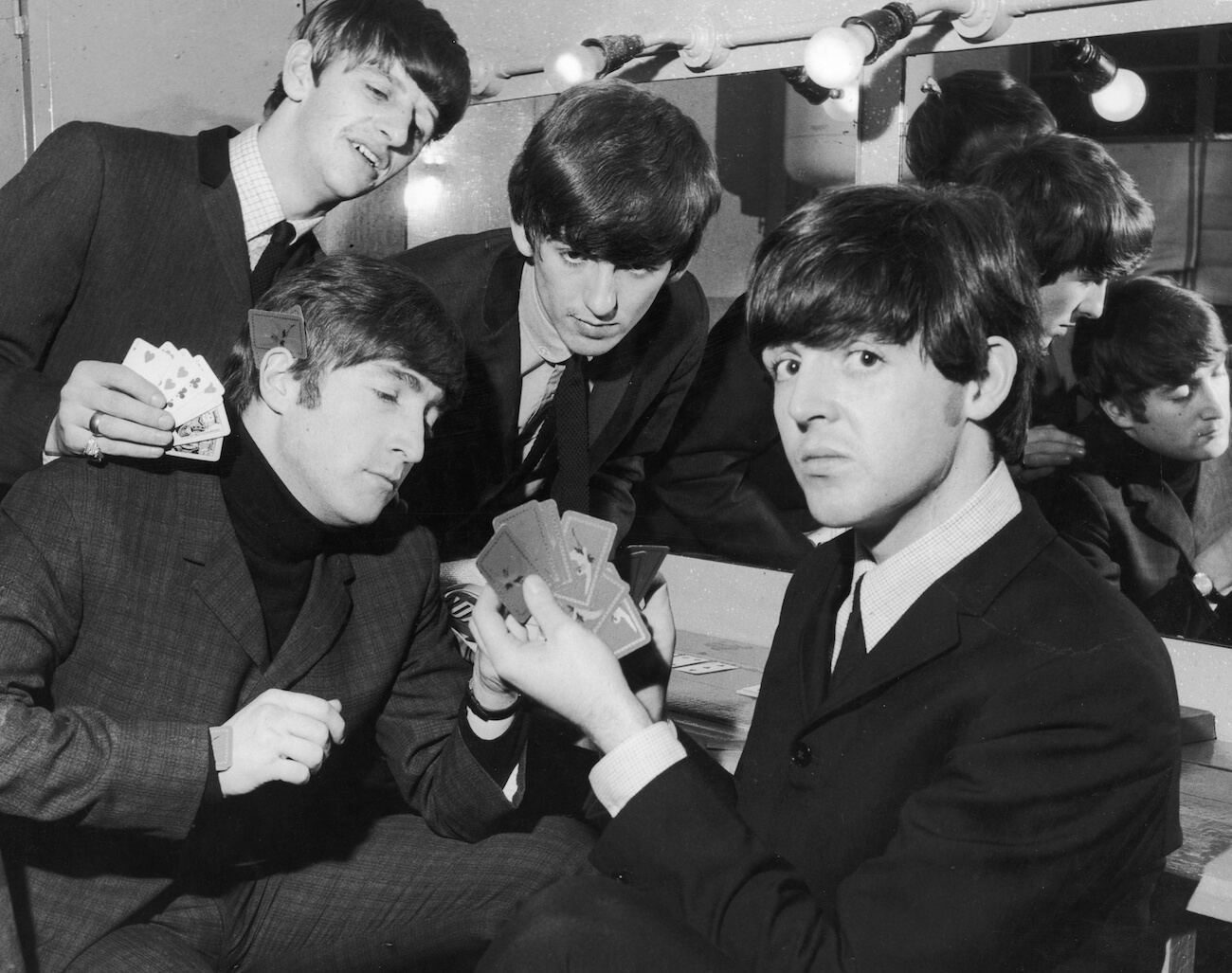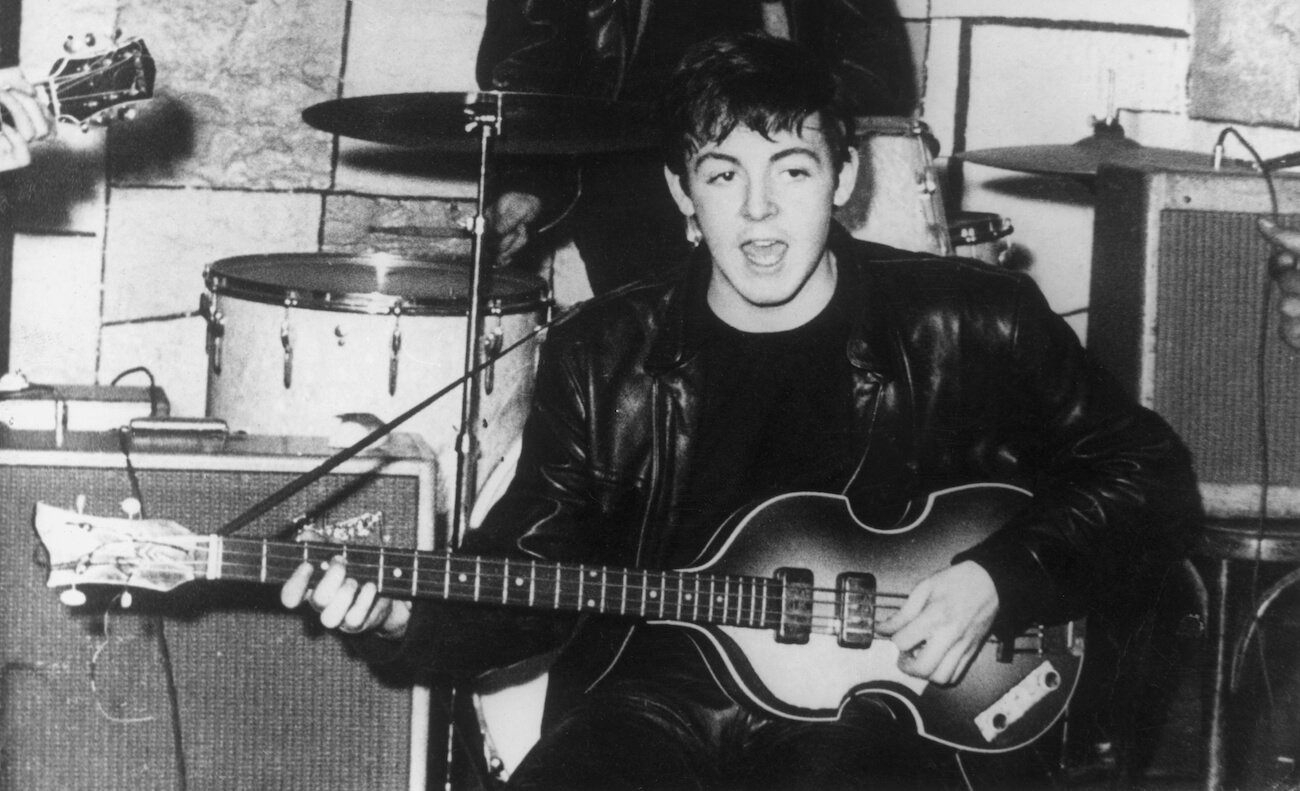
Paul McCartney Took a Week to Decide if He Wanted to Join The Quarry Men
Paul McCartney took a week to decide whether or not he wanted to join The Quarry Men, later The Beatles. He wasn’t sure he wanted to be in a band yet or specifically that group. Thankfully, he joined in the end.

John Lennon had someone else ask Paul McCartney to join The Quarry Men
Paul first saw The Quarry Men perform at the Woolton Village Fête at St Peter’s Church on a hot July day in 1957. His friend Ivan Vaughan had invited him to see the band perform. In The Beatles Anthology, Paul remembered that he landed eyes on John immediately as he came to the church’s field. The frontman seemed “cool,” wearing his checkered shirt and playing a guitar “guaranteed not to crack.”
John was the only interesting thing about The Quarry Men. They played The Del-Vikings’ “Come Go With Me.” Paul realized John only vaguely knew the lyrics and improvised. “He was singing something like ‘Come, come, come, come, go with me, down to the penitentiary,'” Paul remembered. “Those are definitely not the words, but he must have pulled that from Lead Belly or somebody else. I thought that was pretty ingenious of him.”
Vaughan, a mutual friend, introduced them, and Paul played “Twenty Flight Rock” by Eddie Cochran. John was impressed that Paul knew all the words. Despite initially seeming like he didn’t want to associate with Paul because he was younger, John asked his bandmate, Pete Shotton, to invite Paul to join the band. Paul said that was typical.
In The Lyrics: 1956 to the Present, Paul wrote, “That was a very John thing to do – have someone else ask me so he wouldn’t lose face if I said no. John often had his guard up, but that was one of the great balances between us. He could be quite caustic and witty, but once you got to know him, he had this lovely warm character. I was more the opposite: pretty easy-going and friendly, but I could be tough when needed.”
Paul McCartney took a week to decide if he wanted to join The Quarry Men
Whether John had asked him to join the band personally or not, Paul would’ve taken his time considering joining the skiffle group. He wanted to weigh up his options and didn’t want to jump into anything hastily.
During an interview on The Howard Stern Show, Paul said, “I didn’t immediately go, ‘Yeah!’ I’m like that; I don’t rush into things. I think I’m allowed to have a minute to think about it because, wait a minute, ‘Do I want to be in a band? I’ve never been in a band. Do I want to be in this band?'”
In The Lyrics, Paul wrote, “I wasn’t exactly playing hard to get. But I was a careful young fellow. I wondered whether I really wanted to be in a band. Was this a good thing, or should I be trying to study for school?”
Paul decided to join The Quarry Men after thinking about it thoroughly for about a week. “I decided, yeah, we could do something with this band,” Paul said.
Later, the skiffle group recorded their first song
Shortly after joining, Paul told John about George Harrison and his guitar-playing skills. John was hesitant to invite George to join because he was younger than them. However, John couldn’t deny how good George was at his instrument.
Eventually, The Quarry Men became John, Paul, George, Colin Hanton, and Paul’s school friends, John “Duff” Lowe, who played the piano. At some point in 1958, The Quarry Men rented a small recording studio and recorded their first song.
They chose Buddy Holly’s “That’ll Be the Day” as the A-side. Their “self-penned epic,” “In Spite of All the Danger,” was the B-side. In The Lyrics, Paul wrote, “We’d play it for all our relatives and say, ‘Look at this. This is what we did.’ We were quite thrilled just to hear ourselves on a record because we’d never really done that before.”
Four years later, The Beatles were on the road to success. No one would want to imagine what would’ve happened if Paul had decided not to join The Quarry Men.


